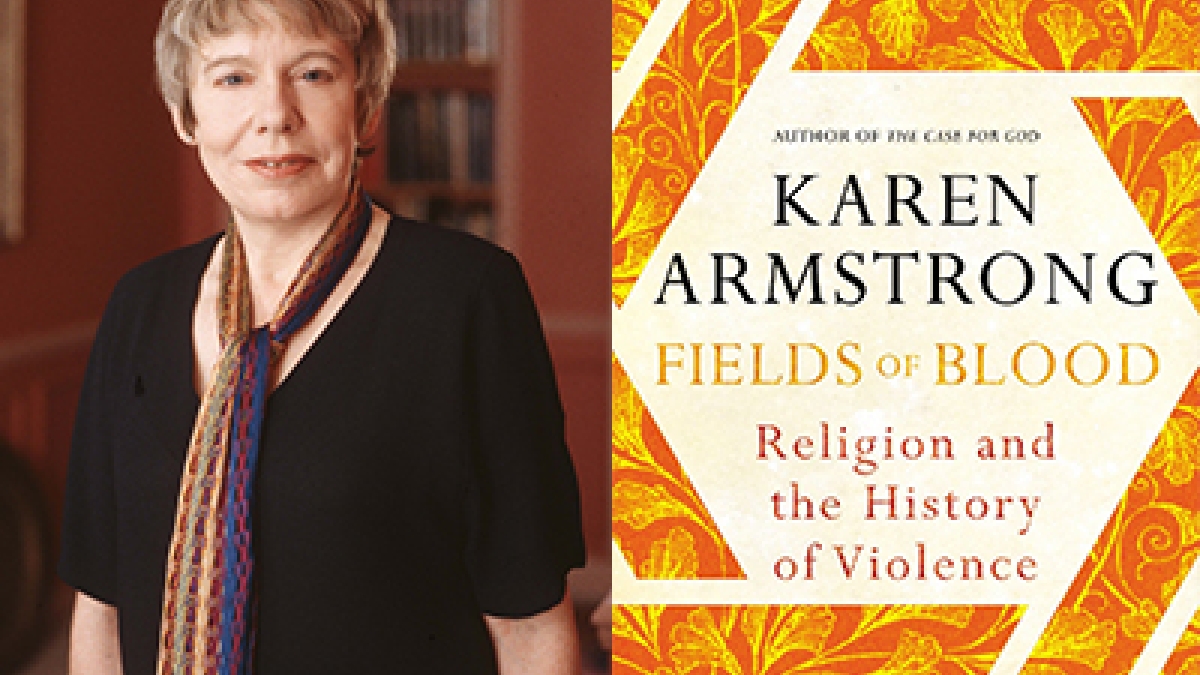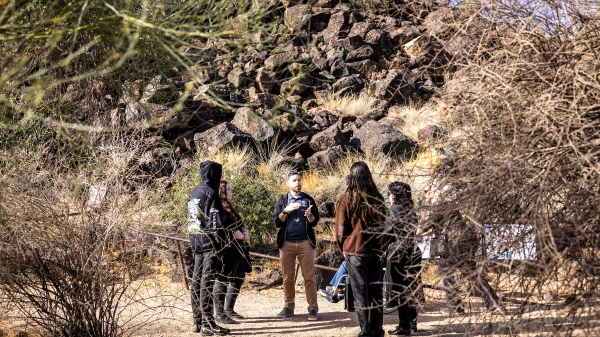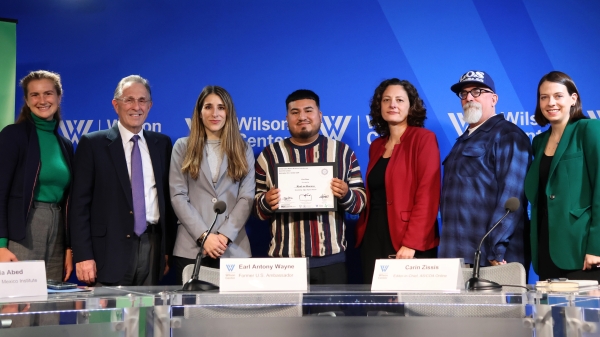Renowned author Karen Armstrong to lecture on religion, violence

Karen Armstrong will discuss her new book “Fields of Blood: Religion and the History of Violence” in a free public lecture at 4 p.m., Oct. 19, in the Evelyn Smith Music Theater on the Tempe campus.
Photo by: Jerry Bauer
"Religion has been the cause of all the major wars in history."
That is what people often say to Karen Armstrong, a former Catholic nun who has written over 20 books about world religions, Buddhism, Islam, myth and the history of God.
She will visit Arizona State University at 4 p.m. Oct. 19, in the Evelyn Smith Music Theater on the Tempe campus, to discuss her most recent book, “Fields of Blood: Religion and the History of Violence.”
The book was motivated in part by Armstrong's experiences discussing religion after 9/11 and hearing the common refrain that religion is prone to violence and war.
The lecture is part of ASU's Center for the Study of Religion and Conflict’s Alternative Visions Lecture Series, which is supported by a grant from philanthropist John Whiteman. The event is free and open to the public, but tickets are required.
“Through numerous books on such far-ranging religious topics as the Bible, the Buddha and the Battle for God, Karen Armstrong has deepened the public's knowledge about the most important moments and movements in religious history — perhaps more so than any author or scholar of religion in the last 25 years,” says John Carlson, acting director of the Center for the Study of Religion and Conflict and associate professor of religious studies.
In “Fields of Blood” Armstrong surveys the history of religious violence and the evolution of the relationship between religion and politics from ancient times to the current day. Her conclusion is that the perception religion has been the root cause of wars and violence is flawed. She argues that it was more often social conditions and the role of the state which caused violence to spill into the religious realm.
She says dismissing violence as a backward byproduct of religion allows Westerners to ignore the essential role that violence has played in the formation of our own societies, and the essential role that our societies have played in seeding violence abroad.
More than an author, Armstrong has been a key advisor on Bill Moyers' popular PBS series on religion, has addressed members of the United States Congress and has spoken at a United Nations’ session on religion.
She was awarded a $100,000 TED Prize in February 2008 that she used to create a Charter for Compassion which identified shared moral priorities across religious traditions in order to foster global understanding and a peaceful world. The charter was presented in Washington, D.C., in November 2009, and signatories include Queen Noor of Jordan, the Dalai Lama and Archbishop Desmond Tutu.
The Religion and Conflict: Alternative Visions Lecture Series brings nationally and internationally recognized experts such as Peter Bergen, Elaine Pagels, Andrew Bacevich, and Reza Aslan to campus to address the sources of conflict and strategies for resolution.
For more information or to register for the lecture, see the event page.
The Center for the Study of Religion and Conflict is an interdisciplinary research unit of the College of Liberal Arts and Sciences that examines the role of religion as a driving force in human affairs.
More Arts, humanities and education

Petroglyph preserve celebrates 30th anniversary with ancient, modern tales
The Deer Valley Petroglyph Preserve provides a beautiful walk through a pristine desert where chuckwalla lizards are as plentiful…

Kaleidoscope short film contest inspires powerful binational filmmaking in its second year
“We come to this country not to steal anybody’s jobs but to take advantage of the opportunities that the rest ignore. We’ve been…

ASU's Neal Lester reflects on life, death of poet Nikki Giovanni
When Neal Lester heard on Monday that poet and activist Nikki Giovanni had died, the news hit hard.Lester, the founding director…